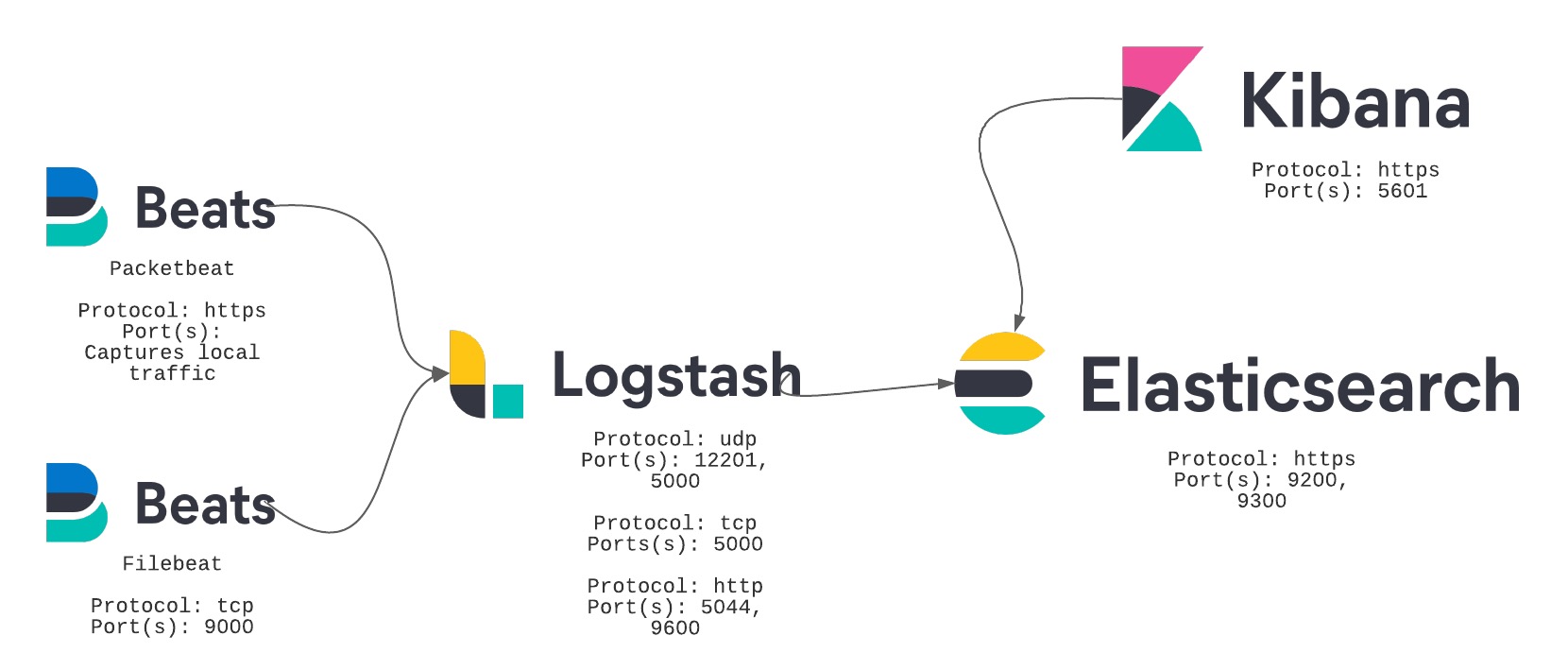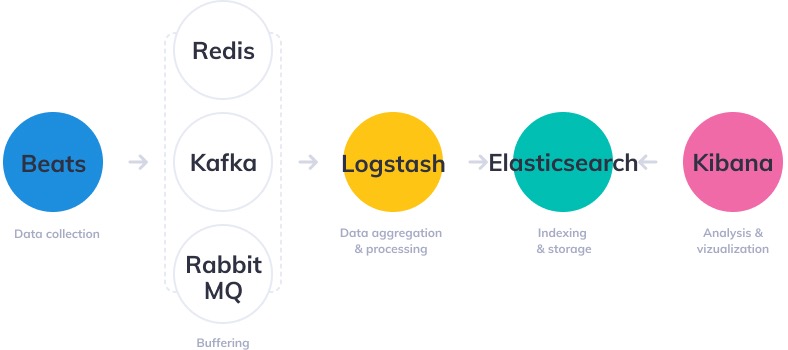elk
Contents
what is elk



roles:
-
logstash:
- ingest datas;
- transform it
- send it to a stash
-
beat: data collection
-
elasticsearch: store data;
logstash
1. collection data configure
|
|
- grok: 1.translate plain text to structure data; 2. add,remove field filter example
|
|
2. output
|
|
- hosts: the stash host
- index: index name
- template
- manage_template: true
- false: only use api to create template
- true: create a template on es on logstah’s startup
- template: custom template path
- template_name: how the template is named
- template_overwrite: overwrite the template if one exists already under the same name;
- manage_template: true
beat and input config
consume a specific source
-
filebeat
-
consume file
1 2 3 4 5 6 7 8 9 10filebeat.inputs: - input_type: log paths: - /var/log/httpd/access.log document_type: apache-access fields_under_root: true output.logstash: hosts: ["127.0.0.1:5044"]
|
|